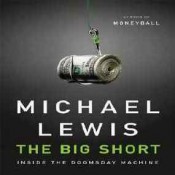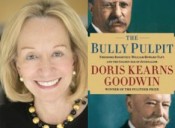DAVID KAISER-How predictable were today’s crises? What happens when we forget history?
Written on August 6th, 2021I talk with historian DAVID KAISER about two books. His own A LIFE IN HISTORY talks about how the study of history has changed. Fields like African-American History and Women’s History deal with evidence nobody had bothered to look at before. But as these focused areas have developed, Kaiser says we look less today at history’s broader sweep. Might this increase our tendency to repeat the past? THE FOURTH TURNING: An American Prophesy (Straus & Howe) holds that history is not linear, but cyclical, and that every 80 years or so, a crisis disrupts society, the old order crumbles, and a new order emerges. No surprise – we’re in the midst of such a crisis. Will we emerge broken or renewed?
ALEX KEYSSAR-Why Do We Still Have the Electoral College?
Written on October 8th, 2020The US hold only one national popular vote – for President and Vice President – and The Republican party has won that national vote only once since 1988, that’s 32 years. Yet they’ve held the presidency 12 of those years. Under the two most recent popular vote losers / electoral college winners, we’ve suffered 9/11, wars in Afghanistan and Iraq, the 2008 recession, the monstrously failed response to the pandemic, and a devastated economy. I believe that minority rule sickens democracy. The electoral college is anti-democratic. I talk with ALEX KEYSAR about his new book, WHY DO WE STILL HAVE THE ELECTORAL COLLEGE?
NEW – JEREMY LENT, THE PATTERNING INSTINCT – What stories have we been telling ourselves?
Written on April 20th, 2018In The Patterning Instinct: A Cultural History of Humanity’s Search for Meaning, JEREMY LENT writes, “The right wing has not won on the issues, but by telling a grand story of America – a story that is false and based on a set of values that are driving civilization to a precipice. It’s been successful because there has been no coherent counter-narrative.” We look at that history and look ahead for a new story.
Q&A: MICHAEL LEWIS – author – Moneyball / The Blind Side / The Big Short
Written on December 19th, 2014 |
Free Forum Q&A – DORIS KEARNS GOODWIN, Author of The Bully Pulpit Roosevelt vs Robber Barons
Written on November 19th, 2013 |
Aired: 11/17/13
The gap between rich and poor is huge and growing…legislative stalemate paralyzes the country…corporations fight federal regulations…the influence of money in politics is greater than ever…new inventions speed the pace of daily life.
Sound familiar? Those headlines from the early 1900s set the scene for Doris Kearns Goodwin’s new book The Bully Pulpit-a history of the first decade of the Progressive era – a time when courageous journalists and an ambitious president took on the Robber Barons – the 1% of their day – and won.
Goodwin tells the tale through the long friendship of Theodore Roosevelt and William Howard Taft – a relationship that serves both until it ruptures in 1912, when they engage in a brutal fight for the presidential nomination that cripples the progressive wing of the Republican Party and helps elect Woodrow Wilson.
Getting equal billing in her account is the golden age of journalism led by the muckraking press at McClure’s magazine. Together a bold and progressive press and a strong and progressive president served the people of the US rather than the super wealthy and the corporations. What lessons can we learn to help us turn this country around a century later?
